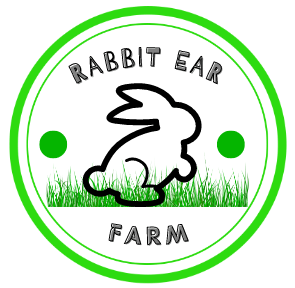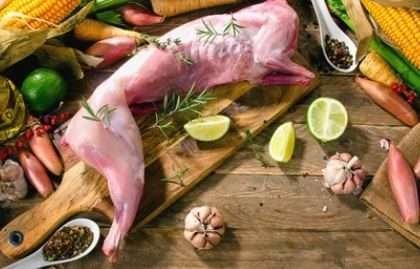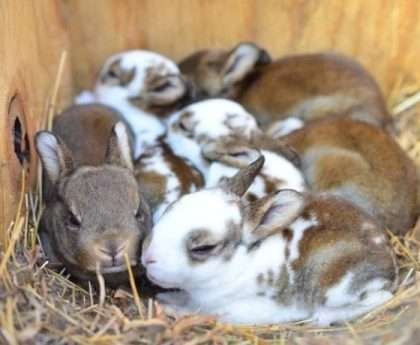Introduction: Rabbits are a popular livestock animal for homesteaders and farmers. They are low-maintenance and require less space than other livestock animals, making them an attractive option for people with limited land or those living in urban areas. But is raising rabbits for meat the right choice for you? In this blog post, we will explore the pros and cons of raising rabbits for meat.
Pros of Raising Rabbits for Meat:
- 1. Nutritional Value:
- Rabbit meat is a healthy and nutritious choice for meat-eaters. It is high in protein, low in fat, and a good source of vitamins and minerals, including vitamin B12, iron, and potassium.
2. Efficient Use of Space:
Rabbits require less space than other livestock animals, making them an excellent option for people with limited land. A few rabbits can be raised in a small backyard or on a balcony, making them accessible to people who live in apartments.
3. Quick Reproduction:
Rabbits are prolific breeders and can produce multiple litters of kits per year. This means that they can be raised in large numbers to meet the demand for meat. Rabbits reach maturity quickly and can be harvested for meat in as little as 10 to 12 weeks.
4. Easy to Raise:
Rabbits are docile animals that are easy to handle. They do not require large amounts of food or water and can be raised with minimal care. Rabbits are also relatively disease-resistant, which makes them a low-maintenance option for farmers.
5. Low Cost:
Rabbits are an affordable source of meat. They require little feed and can be raised on a variety of foods, including hay, grass, and vegetables. Additionally, they do not require a large amount of space, which means that they can be raised on small plots of land.
Cons of Raising Rabbits for Meat:
1. Emotional Attachment:
Some people may find it difficult to raise animals for meat, particularly if they become emotionally attached to the animals. This can be especially challenging with rabbits, as they are known for their friendly and docile nature.
2. Slaughter:
Slaughtering rabbits can be a messy and difficult process. It requires a certain level of skill and experience to harvest rabbits for meat. This can be a barrier for people who are new to raising livestock.
3. Limited Market:
Rabbit meat is not as widely consumed as other types of meat, such as beef, chicken, and pork. This can make it difficult to find a market for rabbit meat. Farmers may need to market their products directly to consumers or restaurants.
4. Predators:
Rabbits are prey animals and are vulnerable to predators such as foxes, coyotes, and birds of prey and even snakes. This can result in the loss of animals and decrease the overall profitability of raising rabbits for meat.
5. Space Requirements:
While rabbits require less space than other livestock animals, they still need room to move around. They require a shelter that is protected from the elements and predators. This can be a challenge for people with limited space or who live in urban areas.
Conclusion:
Raising rabbits for meat can be a rewarding and sustainable option for homesteaders and farmers. The benefits of rabbit meat are numerous, including its nutritional value and efficient use of space. However, there are also challenges associated with raising rabbits, such as the emotional attachment to the animals and the challenge of finding a market for the meat. If you are considering raising rabbits for meat, be sure to research the process thoroughly and consult with experienced farmers. With proper care and attention, rabbits can be a great addition to any homestead or farm.





